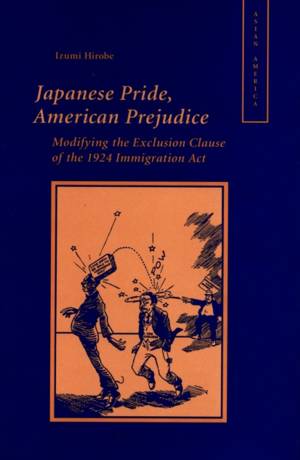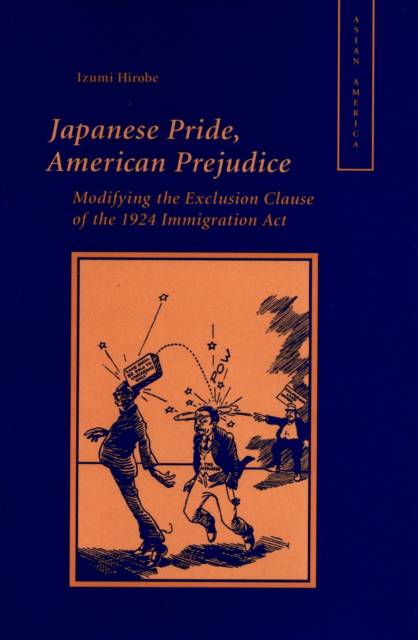
- Afhalen na 1 uur in een winkel met voorraad
- Gratis thuislevering in België vanaf € 30
- Ruim aanbod met 7 miljoen producten
- Afhalen na 1 uur in een winkel met voorraad
- Gratis thuislevering in België vanaf € 30
- Ruim aanbod met 7 miljoen producten
Japanese Pride, American Prejudice
Modifying the Exclusion Clause of the 1924 Immigration Law
Izumi HirobeOmschrijving
Adding an important new dimension to the history of U.S.-Japan relations, this book reveals that an unofficial movement to promote good feeling between the United States and Japan in the 1920s and 1930s only narrowly failed to achieve its goal: to modify the so-called anti-Japanese exclusion clause of the 1924 U.S. immigration law.
It is well known that this clause caused great indignation among the Japanese, and scholars have long regarded it as a major contributing factor in the final collapse of U.S.-Japan relations in 1941. Not generally known, however, is that beginning immediately after the enactment of the law, private individuals sought to modify the exclusion clause in an effort to stabilize relations between the two countries. The issue was considered by American and Japanese delegates at almost all subsequent U.S.-Japan diplomatic negotiations, including the 1930 London naval talks and the last-minute attempts to prevent war in 1941.
However, neither the U.S. State Department nor the Japanese Foreign Office was able to take concrete measures to resolve the issue. The State Department wanted to avoid appearing to meddle with Congressional prerogatives, and the Foreign Office did not want to be seen as intruding in American domestic affairs. This official reluctance to take action opened the way for major efforts in the private sector to modify the exclusion clause.
The book reveals how a number of citizens in the United States--mainly clergy and business people--persevered in their efforts despite the obstacles presented by anti-Japanese feeling and the economic dislocations of the Depression. One of the notable disclosures in the book is that this determined private push for improved relations continued even after the 1931 Manchurian Incident.
Specificaties
Betrokkenen
- Auteur(s):
- Uitgeverij:
Inhoud
- Aantal bladzijden:
- 344
- Taal:
- Engels
- Reeks:
Eigenschappen
- Productcode (EAN):
- 9780804738132
- Verschijningsdatum:
- 1/04/2002
- Uitvoering:
- Hardcover
- Formaat:
- Genaaid
- Afmetingen:
- 152 mm x 229 mm
- Gewicht:
- 675 g

Alleen bij Standaard Boekhandel
Beoordelingen
We publiceren alleen reviews die voldoen aan de voorwaarden voor reviews. Bekijk onze voorwaarden voor reviews.











